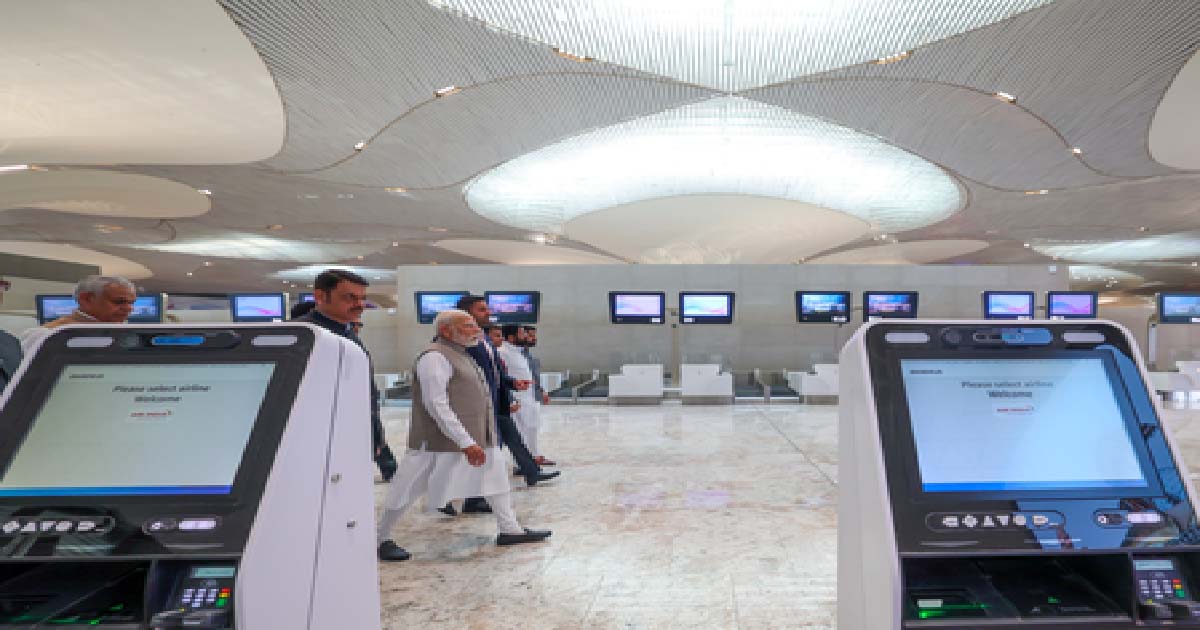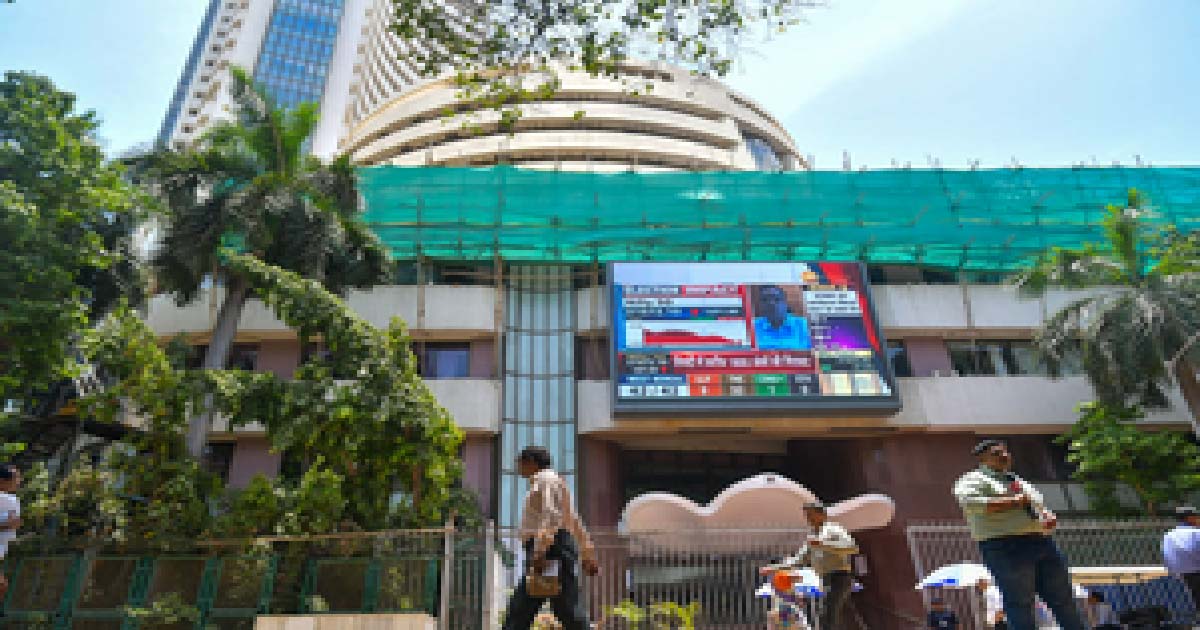Business
Telecom industry to witness healthy revenue growth in FY23

Tariff hikes as well as continued increase in data usage is expected to accelerate telecom industry’s revenue growth in FY23.
The sector has been saddled with debt due to complications such as the ‘Adjusted Gross Revenue’ (AGR) case verdict, which brought in a huge immediate liability on the books of telecom operators.
“While the pandemic had a bad influence on the other sectors, surprisingly, it turned out to be a boon for the telecom sector as corporates were dependent on telecom operators for the smooth running of their operations,” Brickwork Ratings (BWR) said in a report.
“This eventually helped in steady growth in the sectors’ key metrics such as the ‘ARPU’ and ‘MOU’.”
According to the report, the difficult situation for the sector may ease in future as tariff hikes and a continued increase in data usage to result in increased revenue by 6-8 per cent in FY22.
Besides, the subscriber shift towards the 4G network is imminent due to higher need on account of work and education being done from home, which will in turn, lead to an increase in the companiesa¿ total revenues.
Notably, the wireless data usage on average increased by 37 per cent YoY n Q2FY22.
Furthermore, the report cited that the recent hike in tariff plans by 20-22 per cent would help improve the sector’s viability.
“The telecom sector in India is dominated by three major players and is highly competitive in nature, thus making price hikes an uncommon event. However, the recent tariff hikes would help increase the APRU of the telecom operator, deal with the financial crisis and enable investment for the 5G network.”
“However, the flipside is that price hikes may hinder the movement of subscribers to 4G from 2G.”
At present, around 44 per cent of the telecom subscribers are from rural areas, and hence, price hikes could discourage the increased usage of the telecom services.
Moreover, it pointed out that due to the pandemic, educational institutions and NGOs largely depend on telecom operators for reach, which may not be as much after the lockdown is lifted, which is imminent with increased vaccine coverage.
In addition, the agency expects the EBITDA margins of the telcos to improve in FY22 on account of tariff hikes and increased data usage.
“The tariff hikes of 20-22 per cent in November 2021 would lead to an increase in FY22 revenues, the full effect of which would be seen in FY23.”
“The costs for telecom operators are also expected to reduce, given the revision in the definition of the AGR and other reliefs announced by the government.”
Recently, the Department of Telecommunications has already released bank guarantees of Rs 9,200 crore deposited earlier by the telecom operators, thereby improving the liquidity available to them and reducing finance costs.
“This, coupled with the increase in revenue, would help boost the sector’s overall profitability.”
Business
ED arrests real estate firm MD in PMLA case, accused sent to 14-day custody

New Delhi, Nov 15: The Enforcement Directorate (ED) has arrested Ocean Seven Buildtech Pvt. Ltd. (OSBPL) Managing Director Swaraj Singh Yadav after conducting searches at nine locations across Delhi-NCR and other regions in a money-laundering probe under the Prevention of Money Laundering Act (PMLA), 2002, an agency statement said on Saturday.
The action stems from allegations that Yadav diverted and laundered funds collected from homebuyers across multiple projects, including those under the Pradhan Mantri Awas Yojana (PMAY).
The searches on Thursday led to the recovery of Rs 86 lakh in cash, suspected to be proceeds of crime, along with incriminating documents and digital evidence.
According to the ED, Yadav orchestrated a large-scale diversion of homebuyer funds through fraudulent cancellation and resale of units at inflated prices, cash-based premiums collected outside banking channels, and misuse of escrow accounts.
He allegedly routed substantial sums into shell entities and concealed cash proceeds with relatives, the ED statement said.
Investigators also found a pattern of rapid liquidation of assets held personally and through company entities in Gurugram, Maharashtra, and Rajasthan, which the agency believes was intended to secure illicit gains and evade legal scrutiny.
His wife and children have already relocated to the United States, the probe revealed.
The agency said Yadav operated a dual-payment mechanism in the resale of PMAY flats and even in the sale of parking spaces — routing only nominal amounts through banks while collecting the bulk in cash. These activities form part of a wider probe linked to multiple FIRs alleging cheating, forgery, and other predicate offences.
Following his arrest, Yadav was produced before the Court of ASJ-06 at Patiala House Courts on Friday, in compliance with Supreme Court directions.
After detailed submissions from both sides and a pass-over granted to allow him legal assistance, the court sent him to ED custody for 14 days, until November 28.
The agency has been directed to produce him before the court at 2 p.m. on the date of expiry of remand.
The ED said it is pursuing further investigation to trace, freeze, and attach assets acquired from the laundered funds, to ensure recovery and restitution to affected homebuyers.
Business
IndiGo to start flights from Navi Mumbai International Airport from Dec 25

Mumbai, Nov 15: Low-cost airline IndiGo on Saturday announced flight operations from the newly-opened Navi Mumbai International Airport (NMIA) starting December 25, connecting the airport to 10 cities across the country.
IndiGo will connect the future-ready airport to 10 cities, including Delhi, Bengaluru, Hyderabad, Ahmedabad, Lucknow, North Goa (Mopa), Jaipur, Nagpur, Cochin, and Mangalore, the airline said in a statement.
The airline said it plans to expand operations at NMIA progressively by adding direct routes to more destinations in due course.
NMIA, the second airport in the Mumbai metropolitan area, is designed to complement Chhatrapati Shivaji Maharaj International Airport and meet growing demand for air travel from India’s financial capital.
NMIA is expected to enhance regional connectivity and support economic development in western India due to its strategic location.
By enhancing regional connectivity and supporting economic development in western India, the launch of IndiGo’s operations will connect the airport to its vast domestic network of 95 airports across the country, it added.
The Navi Mumbai International Airport was inaugurated by Prime Minister Narendra Modi last month, as a major achievement in India’s economic development and “a symbol of Bharat’s aspirations”.
PM Modi said that Mumbai welcomed its second international airport, marking a significant milestone in its journey to becoming Asia’s premier connectivity hub. “Through this new airport, the farmers of Maharashtra will be able to connect with supermarkets in Europe and the Middle East as well,” he observed.
NMIA will ease congestion at Chhatrapati Shivaji Maharaj International Airport and significantly increase India’s aviation capacity.
The Navi Mumbai International Airport Private is designed to accommodate both domestic and international passengers, featuring state-of-the-art facilities. It includes a 3,700-metre runway capable of handling large commercial aircraft, modern passenger terminals, and advanced air traffic control systems.
Business
Stock markets end week on a strong note as NDA secures landmark win in Bihar

Mumbai, Nov 15: Indian equity markets ended the week on a strong note, with benchmark indices gaining on the resolution of the US government shutdown, supported by strong domestic fundamentals, better-than-expected Q2 earnings, easing inflation and NDA’s historic victory in Bihar, according to analysts.
Record-low October inflation reinforced expectations of an RBI rate cut, adding momentum to domestic equities.
According to Vinod Nair, Head of Research, Geojit Investments Limited, sectoral momentum was broad-based, led by gains in IT, Pharma, healthcare and Auto stocks.
“Toward the week’s close, the NDA’s Bihar election victory bolstered investor confidence, but fading expectations of a U.S. Fed rate cut triggered profit booking in IT stocks, tempering their earlier gains,” he mentioned.
The indices remained under pressure for most of the session on Friday, oscillating between losses and brief recoveries, before a strong late-afternoon rebound pushed them into the green.
Volatility picked up as markets tracked the Bihar election outcome, the day’s key trigger.
Sentiment was also weighed down by weak global cues after Wall Street fell sharply overnight, led by declines in Nvidia and other tech majors as investors dialled back hopes of near-term rate cuts amid lingering inflation worries, according to a note by Bajaj Broking Research.
At close, the Sensex ended 84 points or 0.1 per cent higher at 84,563, while the Nifty finished 31 points up at 25,910. Sectoral trends were mixed, with PSU banks leading gains at 1.17 per cent, followed by firm moves in pharma and FMCG.
Energy and infrastructure saw mild upticks. On the downside, IT declined 1.03 per cent, while auto, metal, and realty ended lower.
Among the broader market space, Nifty Small-cap 100 rose 0.38 per cent, while the Midcap 100 gained 0.08 per cent.
According to analysts, Nifty on the weekly chart has formed a strong bull candle with a higher high and a higher low signaling pullback after two weeks of corrective decline, “in line with our expectations from the key support area of 25,400-25,300”.
Going ahead, bias continues to remain positive and a follow through strength above last month high of 26,100 will open upside towards the previous all-time high of 26,277 in the coming week.
Looking ahead, market direction will hinge on key macro triggers such as India’s PMI data, US jobless claims, FOMC minutes and progress on US–India trade negotiations.
-

 Crime3 years ago
Crime3 years agoClass 10 student jumps to death in Jaipur
-

 Maharashtra1 year ago
Maharashtra1 year agoMumbai Local Train Update: Central Railway’s New Timetable Comes Into Effect; Check Full List Of Revised Timings & Stations
-

 Maharashtra1 year ago
Maharashtra1 year agoMumbai To Go Toll-Free Tonight! Maharashtra Govt Announces Complete Toll Waiver For Light Motor Vehicles At All 5 Entry Points Of City
-

 Maharashtra1 year ago
Maharashtra1 year agoFalse photo of Imtiaz Jaleel’s rally, exposing the fooling conspiracy
-

 National News1 year ago
National News1 year agoMinistry of Railways rolls out Special Drive 4.0 with focus on digitisation, cleanliness, inclusiveness and grievance redressal
-

 Maharashtra1 year ago
Maharashtra1 year agoMaharashtra Elections 2024: Mumbai Metro & BEST Services Extended Till Midnight On Voting Day
-

 National News1 year ago
National News1 year agoJ&K: 4 Jawans Killed, 28 Injured After Bus Carrying BSF Personnel For Poll Duty Falls Into Gorge In Budgam; Terrifying Visuals Surface
-

 Crime1 year ago
Crime1 year agoBaba Siddique Murder: Mumbai Police Unable To Get Lawrence Bishnoi Custody Due To Home Ministry Order, Says Report












